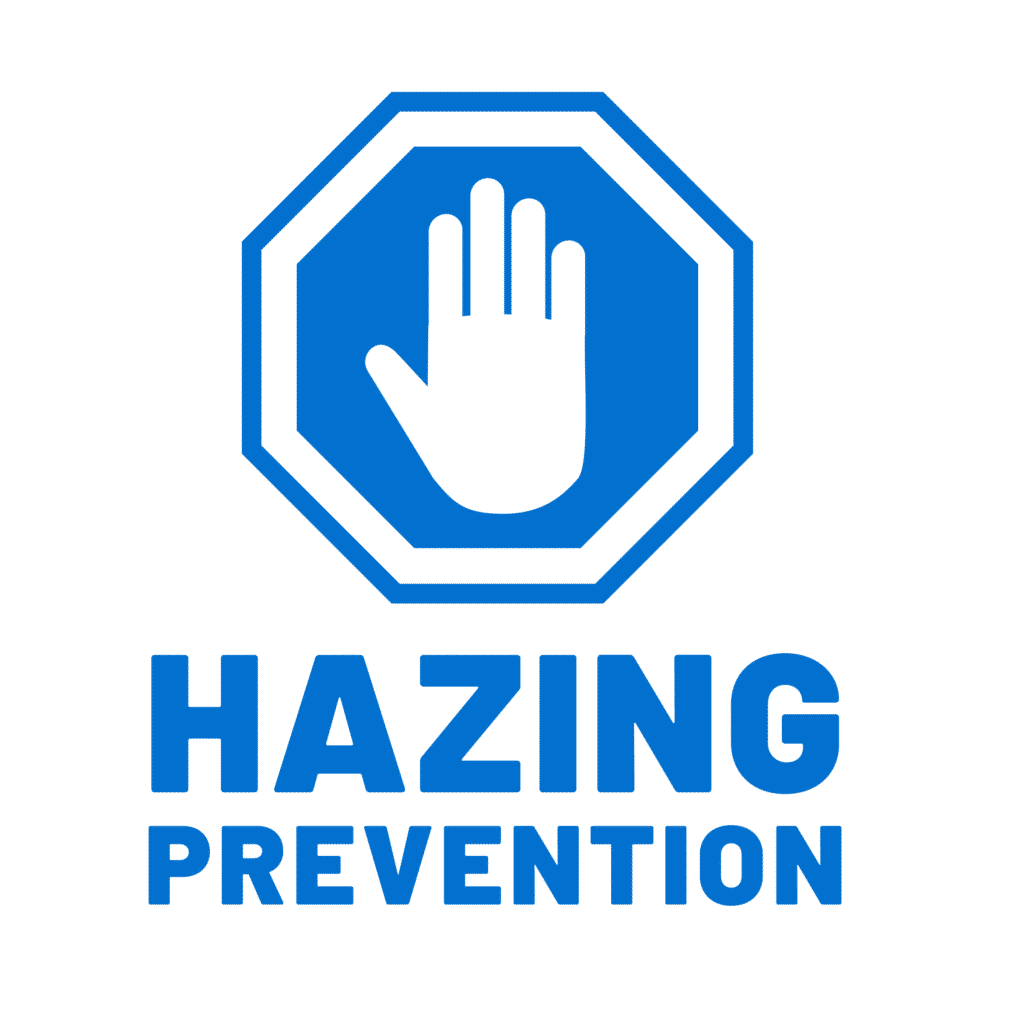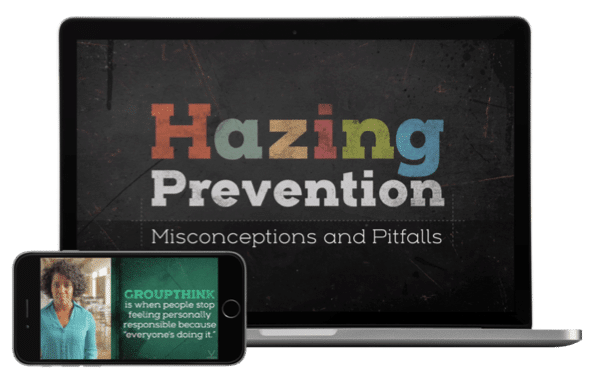About Hazing
Hazing has been a timeless and illegal tradition on college and university campuses. Often seen hand-in-hand with Greek Life on campus and athletic teams, hazing can also be found across student groups such as honor societies and performing arts groups.
It’s important staff, faculty, and students know the statistics on hazing as well as the legal consequences if hazing is occurring on your campus.
According to a study by Stop Hazing, three out of five students are subjected to hazing on campus and 95 percent of students who are hazed, don’t report hazing to campus officials.
Key Focus Areas for Reducing Hazing on Your Campus

Hazing Statistics
Hazing Misconceptions
History of Hazing
Prevention Education
Hazing Statistics
To fully understand hazing and the gravity of its presence on campus, let's breakdown some facts:
60% of students are subjected to some form of hazing on campus.
40 students have died in the last decade due to hazing.
95% of students who are victims of hazing, don't report it.
82% of hazing deaths involve alcohol.
Why Hazing
Students often participate in high-risk and life-threatening hazing activities for the following perceived benefits:
- Provides a sense of accomplishment
- Makes him/her feel like part of the group
- Promotes self-discipline
- Prepares him/her for emotional challenges in life
- Allows him/her to do crazy things
As the perceived benefits show, students often willingly participate in hazing activities to gain admittance into the group or club at whatever cost. Hazing behaviors can often be violent and nonsensical.
The most frequently reported hazing behaviors:
- Drinking games or consumption of large amounts of alcohol until ill
- Singing/chanting in public
- Association with specific people and not others
- Sleep deprivation
- Screamed, yelled, and cursed by current members
Legally, hazing is banned in 44 states. Each has different stipulations for the harshness of the criminal charges, but as you’ll see, most are very serious when it comes to hazing offenses.
Worried About Hazing on Your Campus?
Unfortunately, some student organizations throughout the nation have resisted stopping hazing rituals and have become national headlines for the death of new members – facing disciplinary expulsion, criminal fines, jail time, and more.
It’s important that your administration sends a clear and recurring message to students about hazing and its role on your campus – prohibited and in most states, illegal. Your campus can pay the price if you are found to be negligent in criminal hazing cases – as well as shine a negative spotlight on your campus.
As student groups begin to offer new membership to students during the school year, remember to review and update your campus policies about hazing.
See state-specific hazing laws here.
5 Helpful Guidelines to Reduce Hazing on Your Campus
- Provide hazing awareness and prevention training for students, faculty and staff on hazing and the dangers associated with it.
- Meet regularly with student groups on campus to clarify campus policy and understand their implementation process.
- Enforce state laws and campus policies on hazing and implement strict disciplinary consequences – send students a consistent, clear message.
- Offer students, faculty and staff a safe, anonymous way to report hazing incidents on campus – a known deterrent to reporting hazing is the fear of retaliation.
- Host a campus forum for students, faculty and staff to have an honest and open discussion about hazing in student groups.
Here’s How Vector Solutions Can Help
Vector Solutions offers both student and employee training courses that help identify hazing and how to prevent hazing on campus:

Hazing Prevention: Misconceptions and Pitfalls (Student) - designed to break the cycle of hazing in Greek Life, athletic teams, and other clubs and organizations on campus. Students learn through peer presenters and powerful testimonials, both from victims and perpetrators, that hazing is not effective.
Hazing (Employee) - provides insight and advice to understand why hazing occurs, strategies to identify hazing and how to address hazing students on your campus. It will also cover the health and legal risks as well as your responsibility

The Vector LiveSafe Safety Communications Platform and Mobile App can be used to prevent and investigate sexual assault, hazing, discrimination, threats of violence and more on your campus. It lets students, faculty and staff anonymously report tips to their administration 24/7 from any web-enabled device. Users can submit tips through the phone, text, email and website.




